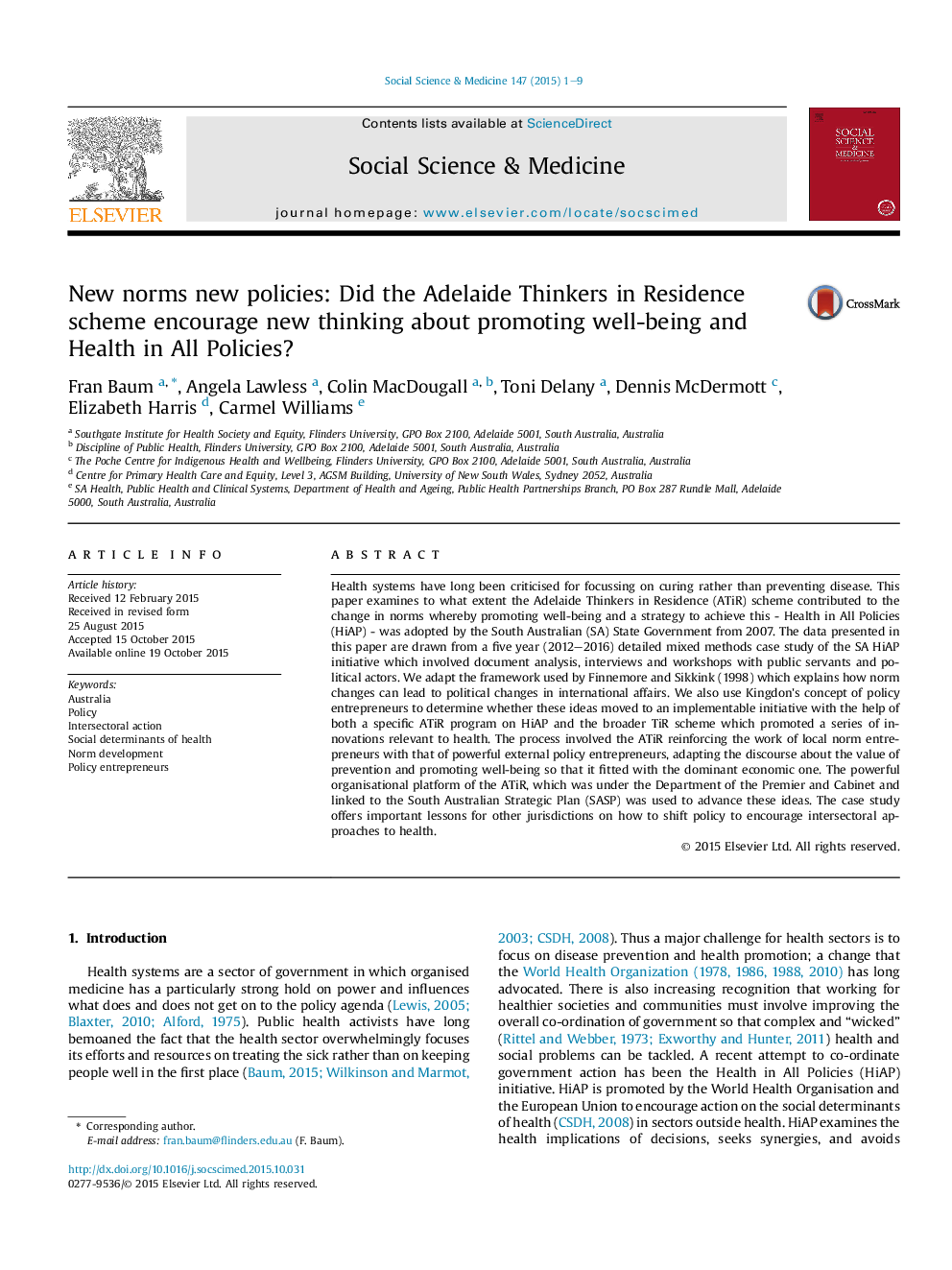| Article ID | Journal | Published Year | Pages | File Type |
|---|---|---|---|---|
| 7331077 | Social Science & Medicine | 2015 | 9 Pages |
Abstract
Health systems have long been criticised for focussing on curing rather than preventing disease. This paper examines to what extent the Adelaide Thinkers in Residence (ATiR) scheme contributed to the change in norms whereby promoting well-being and a strategy to achieve this - Health in All Policies (HiAP) - was adopted by the South Australian (SA) State Government from 2007. The data presented in this paper are drawn from a five year (2012-2016) detailed mixed methods case study of the SA HiAP initiative which involved document analysis, interviews and workshops with public servants and political actors. We adapt the framework used by Finnemore and Sikkink (1998) which explains how norm changes can lead to political changes in international affairs. We also use Kingdon's concept of policy entrepreneurs to determine whether these ideas moved to an implementable initiative with the help of both a specific ATiR program on HiAP and the broader TiR scheme which promoted a series of innovations relevant to health. The process involved the ATiR reinforcing the work of local norm entrepreneurs with that of powerful external policy entrepreneurs, adapting the discourse about the value of prevention and promoting well-being so that it fitted with the dominant economic one. The powerful organisational platform of the ATiR, which was under the Department of the Premier and Cabinet and linked to the South Australian Strategic Plan (SASP) was used to advance these ideas. The case study offers important lessons for other jurisdictions on how to shift policy to encourage intersectoral approaches to health.
Related Topics
Health Sciences
Medicine and Dentistry
Public Health and Health Policy
Authors
Fran Baum, Angela Lawless, Colin MacDougall, Toni Delany, Dennis McDermott, Elizabeth Harris, Carmel Williams,
